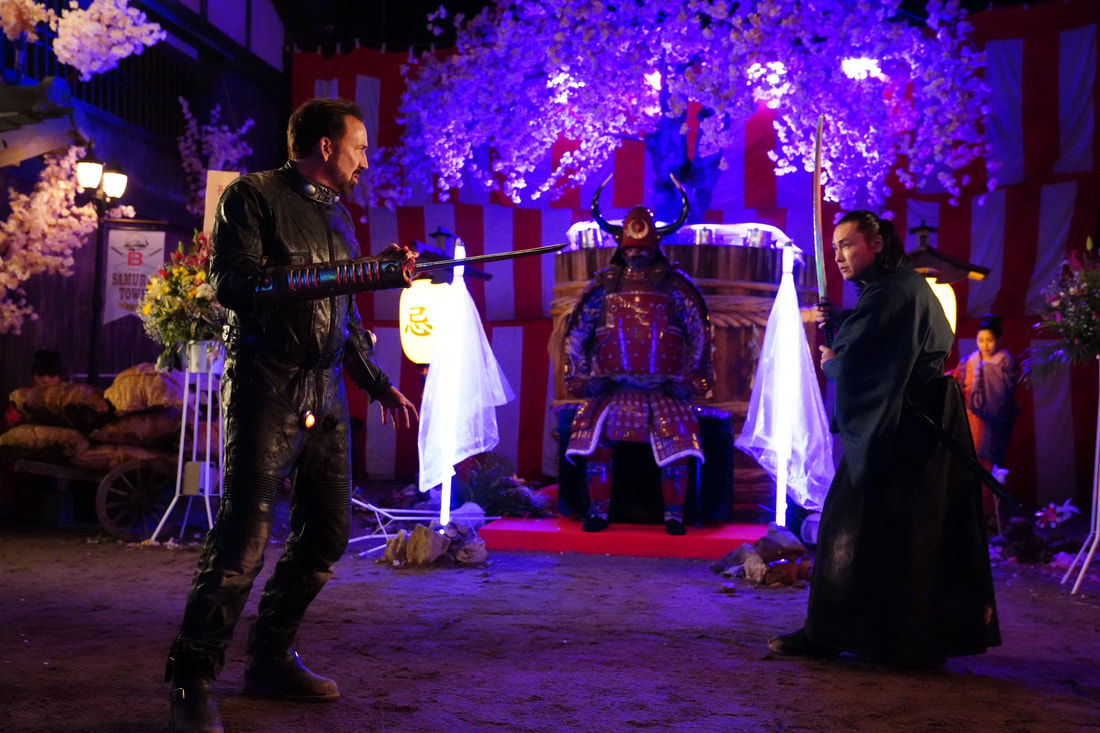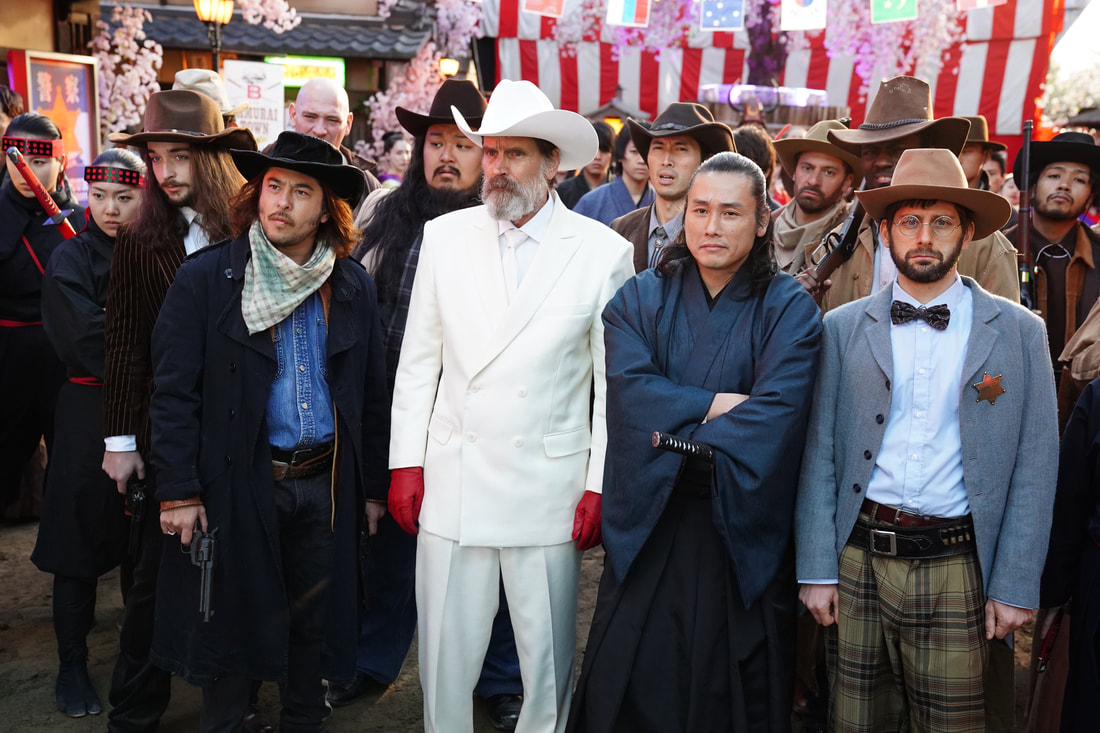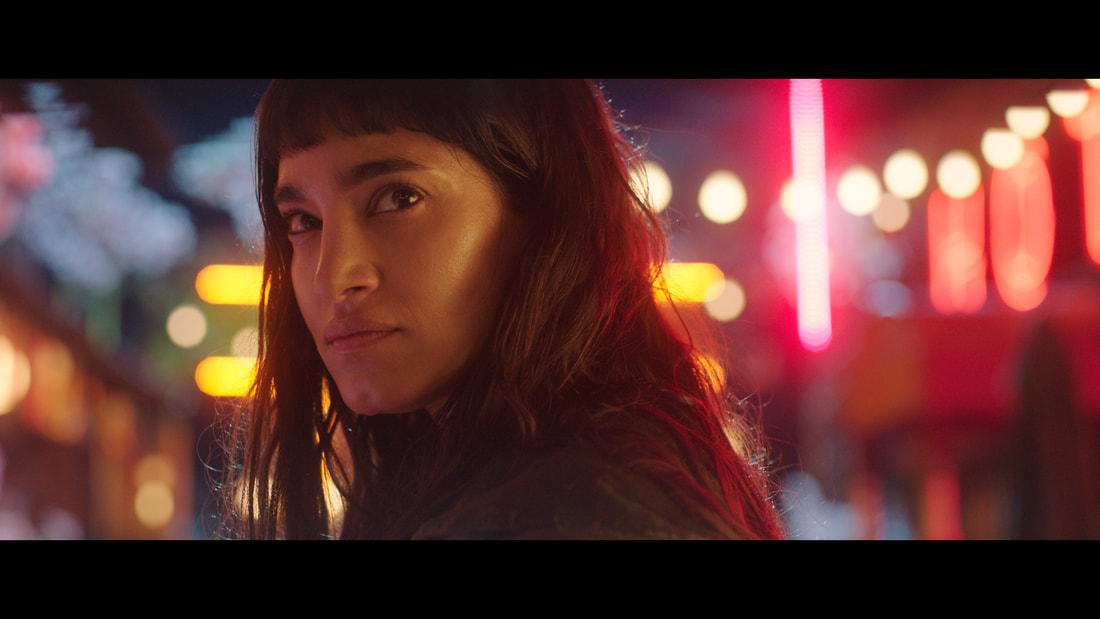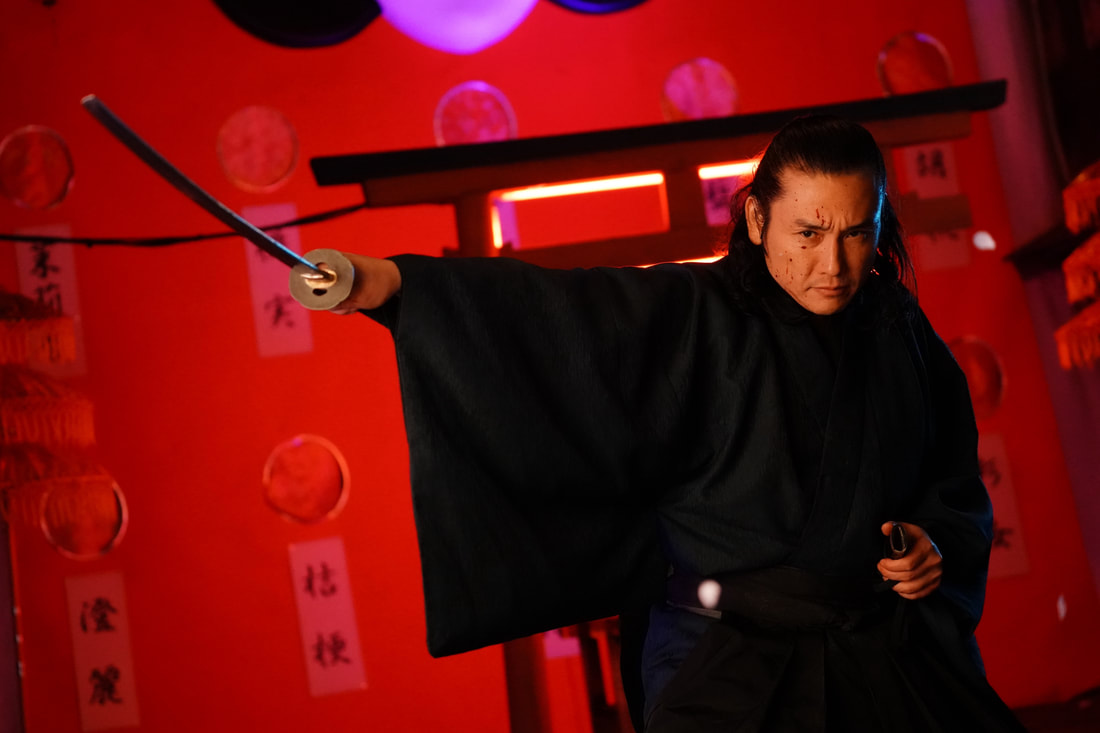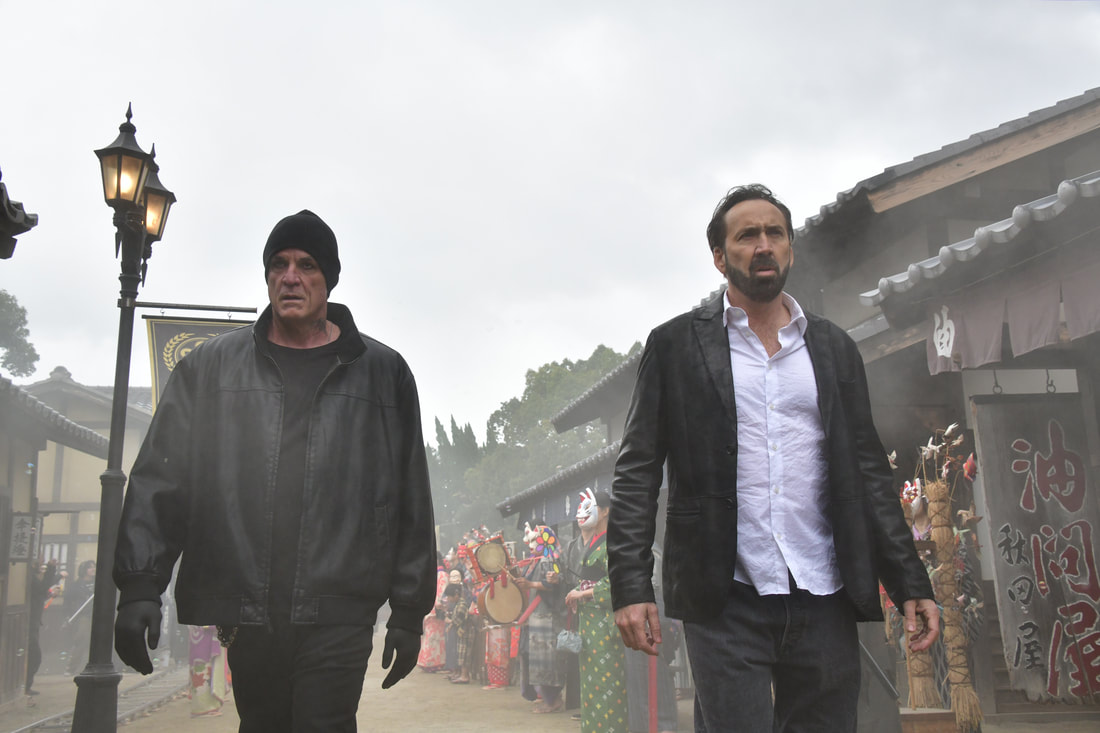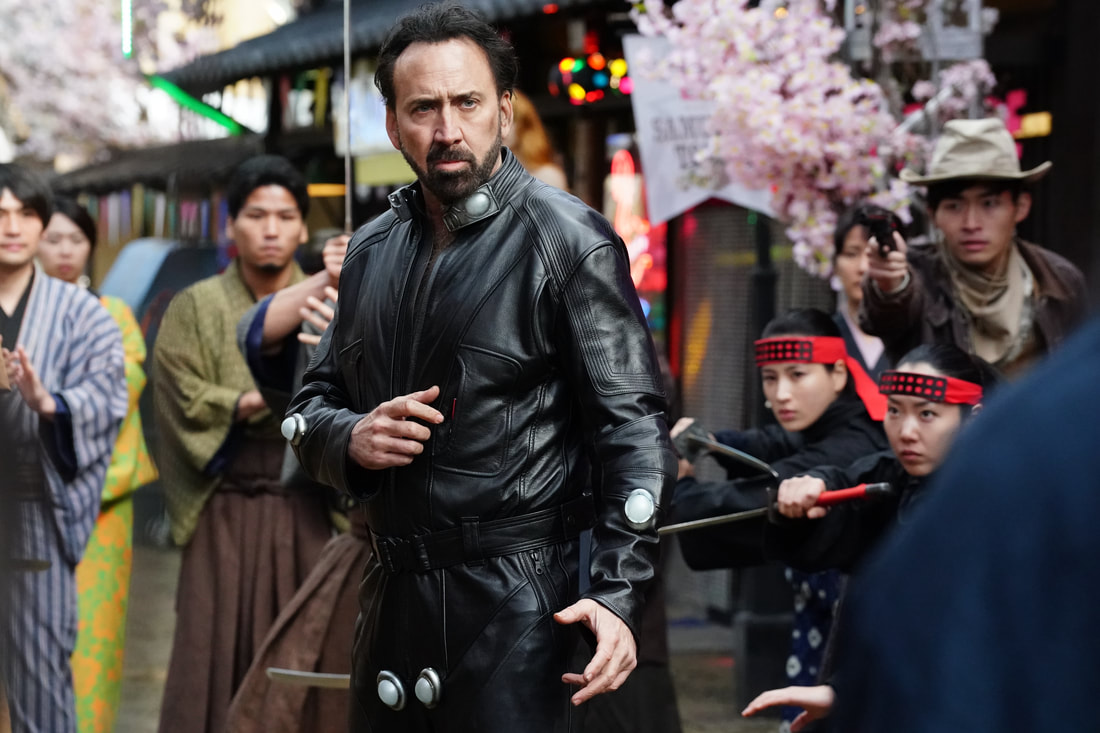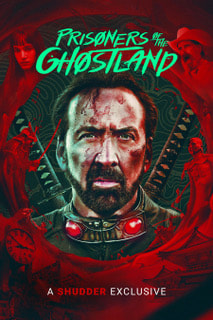|
There’s just no other way to put it: Sion Sono’s Prisoners of the Ghostland is just downright bizarre. But is it a bizarre work of genius, a bizarre flop, or something in between? This absurd dystopian action flick scores so highly in some categories and so poorly in others that it’s difficult to rate the film overall. The production design is outrageously fun, the cinematography is breathtaking, and Joseph Trapanese’s score is bursting at the seams with memorable motifs that work perfectly in a genre-driven movie. But the script? Let’s just say it’s a good thing Nicolas Cage has so much experience pushing bad dialogue to its limits. Thanks to Cage’s performance, Prisoners of the Ghostland falls into the “it’s so bad, it’s good” category. If you can accept the movie for what it is — a wacky celebration of genre created by an experienced director who has earned the right to do whatever he wants with his movies — you might not hate Prisoners of the Ghostland too much. Prisoners of the Ghostland is Sono’s first English-language feature. After its world premiere at the Sundance Film Festival in early 2021, the film went on to screen at numerous festivals throughout the year. As a genre hybrid and a tribute to all things trippy and gory, it’s no wonder the flick found its place at events like the Fantasia International Film Festival. Sono throws the thrills, chills, and frills of Westerns, action flicks, heist movies, and sci-fi / fantasies into a post-apocalyptic melting pot, creating an outrageous movie that feeds off of its own ridiculousness. The story takes place in a dystopian village called Samurai Town, which is seemingly controlled by a wealthy man who calls himself “The Governor” (Bill Moseley). An imprisoned bank robber (Cage) is given the chance to start a new life when The Governor sends him on a suicide mission to save his “granddaughter,” Bernice (Sofia Boutella). Unbeknownst to the bank robber, Bernice is trapped in a cursed ghostland that’s somehow connected to his own past. While this might sound like a fine recipe for a fantasy, the loosely structured plot dissolves entirely as soon as the bank robber arrives in the ghostland. Writers Aaron Hendry and Reza Sixo Safai didn’t put much thought into how they would move the characters from one plot point to the next. They just took the story wherever they wanted it to go. The finer details of the plot don’t make much sense at all, but luckily, it follows such a familiar action/adventure template that it’s easy to figure out what’s going on. In many ways, Prisoners of the Ghostland is like a chaotic and badly written school play. It feels very staged, performative, and overdramatic, as if each character is fighting to be the star. It’s clear that Sono wasn’t trying to follow any particular set of rules when he created the visual aspects of Prisoners of the Ghostland. He borrows stylistic elements from several different genres to create the visuals he wants — and in this case, the strange hodgepodge works. While the style of the film isn’t 100% cohesive, it’s eye-grabbing and memorable. There’s something creatively indulgent about Prisoners of the Ghostland, as if Sono just combined all the artistic imagery that influenced him without bothering to figure out how those images would fit together. The shattered mannequin pieces that make up Bernice’s disguise in the ghostland belong in a YA steampunk novel, while the gumball machine in the bank robber’s flashbacks belongs in a modern pop-music video. The giant clock in the ghostland recalls Steven Spielberg’s version of Neverland in Hook, while the dramatic chorus on the steps in front of that clock recalls the imagery of Greek tragedies. Throw all those visual influences together and you get a bizarre yet fun cinematic experience. The film’s hybrid script, however, isn’t quite as satisfying. If you forced a bot to watch a cycle of Western and post-apocalyptic fantasy movies for several days at a time and then told it to write a script that combines the two genres, it might write something like Prisoners of the Ghostland. The dialogue is absolutely horrendous — and not just in a cringey way. The conversations literally make no sense. However, it doesn’t take a genius to figure out that Prisoners of the Ghostland isn’t supposed to be a serious drama. Sono, Hendry, and Safai use the script to celebrate the unbearably cringey dialogue of low-budget action movies, which can actually be pretty humorous and entertaining. After all, who wants to watch a boring but eloquently scripted drama when you could turn on a cheap trashy movie that actually keeps you awake? The problem is that the awful dialogue makes it difficult to follow the plot. For his part, Nicolas Cage has fun with the ridiculous dialogue, hamming up dramatic lines with as many meme-able expressions as he can muster and screaming like a madman even when the script doesn’t require it. He approaches the script much like his character approaches his mission to rescue Bernice. When The Governor hands him the keys to a sleek car for his mission, the bank robber promptly revs the engine, does a few donuts, hops back out of the car, and rides off into the sunset on a bicycle without sacrificing a shred of his dignity. Similarly, Cage doesn’t take his role as a whole too seriously. Instead, he has as much fun with it as possible. But what’s odd is that Sofia Boutella does seem to take her role seriously, leaning into the plot’s underwhelming themes about freedom and redemption. Again, it doesn’t seem like we’re supposed to take these themes seriously. They’re just inherent in the film’s templated post-apocalyptic action plot. Perhaps as the token “imprisoned female” character, Boutella wasn’t granted space to approach her role with the same tongue-in-cheek bravado as Cage. It would be easy to say that Sono purposely made the entire film as ridiculous as possible, but with a few serious elements in the mix, it’s difficult to tell what the director was thinking.
0 Comments
Leave a Reply. |
"Our embodied spectator, possibly perverse in her fantasies and diverse in her experience, possesses agency...finally, she must now be held accountable for it." Categories
All
|

